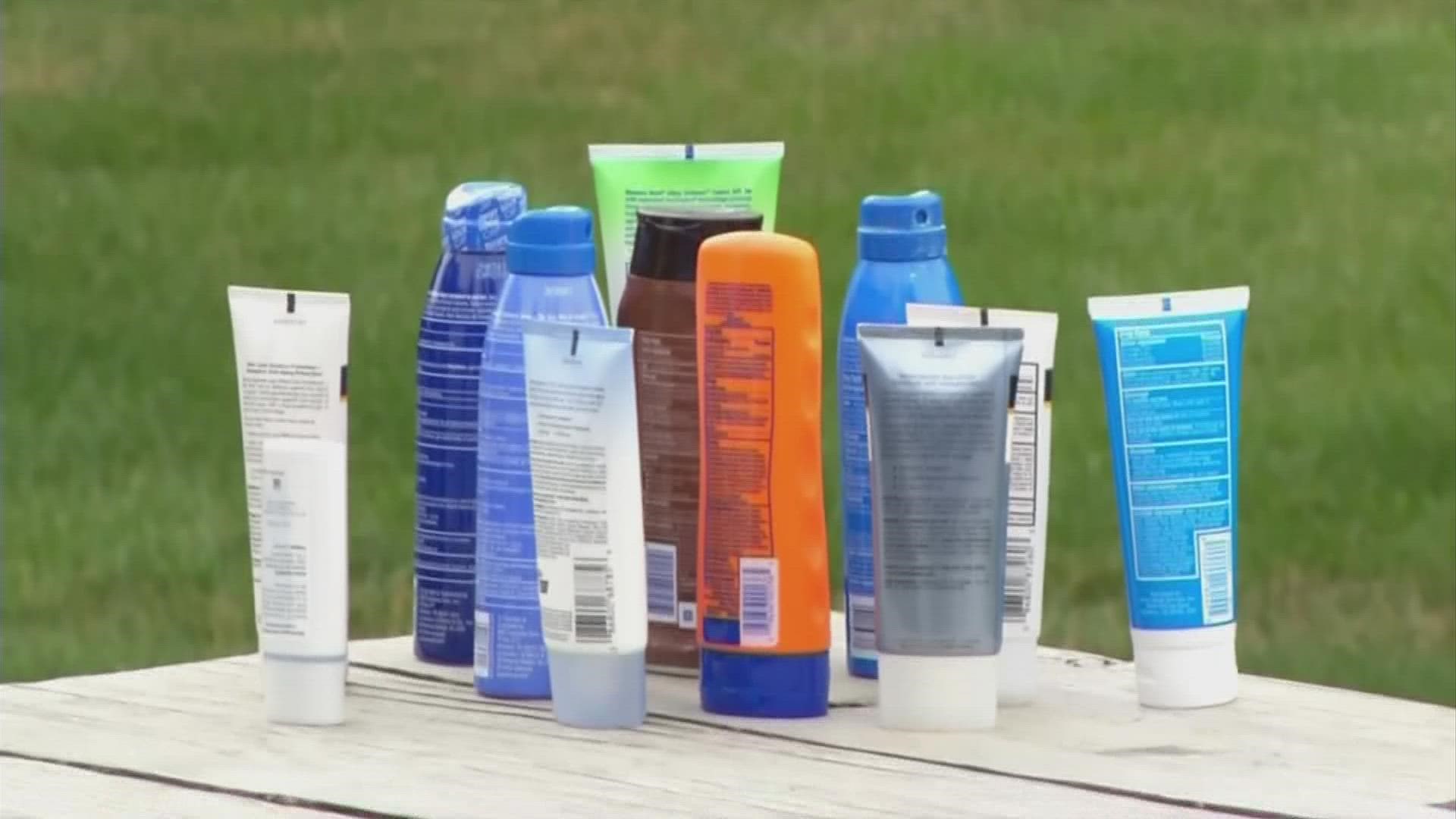COLUMBUS, Ohio — The U.S. Food and Drug Administration and the American Academy of Pediatrics are warning parents to be careful with the sunscreen they put on their children, especially infants.
Some sunscreens can cause side effects, including rashes.
The AAP recommended keeping newborns and babies younger than 6 months out of direct sunlight and in the shade.
Clothing that covers and protects sensitive skin and a hat that provides shade to the face, neck, and ears are good choices as well, according to the federal alert.
“You really want to be protective of the sun for your kids in those ages, because often they aren’t able to tell you when they are getting too much sun,” said Dr. Susan Massick, an associate clinical professor of dermatology at Ohio State University Wexner Medical Center. "It’s very easy for children to get sunburn just in the matter of a half-hour to fifteen minutes out in the sun.”
Dr. Massick says to also be aware that some sunscreens can often cause rashes and sensitivities. If you choose to use sunscreen, there are some ingredients that offer the best protection.
“There are mineral sunscreens that are much safer, like titanium dioxide and zinc oxide are the go to standards when it comes to sunscreens," she said. "They are very safe, they don’t cause rashes and you can use them at virtually any age.”
Here is a list of recommendations from the FDA to keep infants safe from the sun:
- Keep your baby in the shade as much as possible.
- Talk to your pediatrician before using any sunscreen on your baby.
- Make sure your child wears clothing that covers and protects his or her sensitive skin. If you hold the fabric against your hand and it’s sheer enough to see through it, it probably doesn’t offer enough protection.
- Make sure your baby wears a hat that provides shade to the face, neck, and ears.
- Watch your baby carefully for warning signs of sunburn or dehydration. These signs include fussiness, redness, and excessive crying.
- If your baby is becoming sunburned, get out of the sun right away and apply cold compresses to the affected areas. Call your baby’s pediatrician right away.
- Hydrate! Give your child formula or breast milk if you’re out in the sun for more than a few minutes.
- Remember to pack a cooler to store the liquids.
___
Consumer 10 Coverage:

